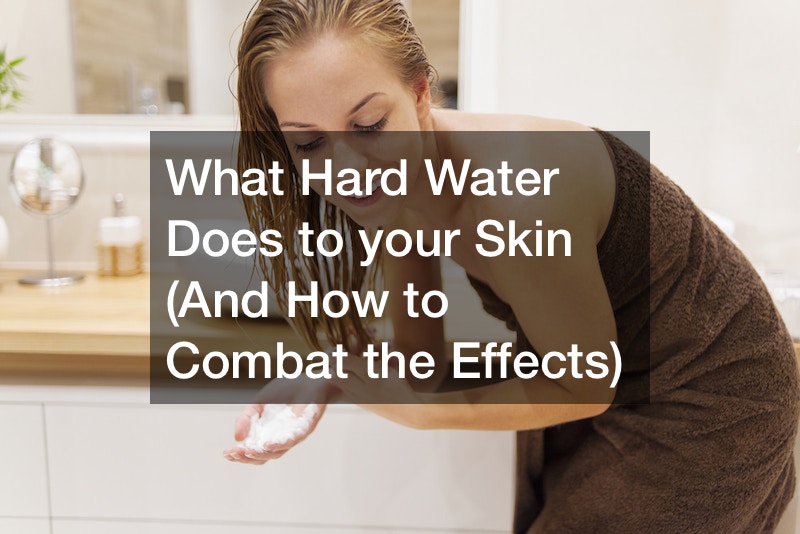
https://healthyhuntington.org/2022/08/17/what-hard-water-does-to-your-skin-and-how-to-combat-the-effects/
The higher levels of dissolved minerals like magnesium and calcium. Soft water on the opposite, is mineral-free, and contains less than one grain of hardness for every gallon. It’s the World Health Organization states that hard water can be advantageous as a supplement to eating habits. The magnesium and calcium rich water can protect you from stroke and heart disease. However, while it’s safe for drinking, what this water affects the skin when bathing is another matter. In this post we’ll talk about the adverse effects of hard water as well as the methods you can do to reduce these effects.
What happens when you drink hard water? The Skin Barrier
Based on the research (The effect of water hardness on atopic eczema, the function of the skin barrier) carried out by at the University of Sheffield and King’s College London, exposure to hard water can damage the barrier to skin. There are five layers of the skin: the epidermis on top followed by the dermis and following that is the hypodermis. It is the fatty, or bottom layer of the skin. The barrier to skin, also called the stratum Corneum, is the protective outermost layer of the skin and is one of the five layers in the epidermis. This layer protects us from diseases and toxic substances in the environment, that could create havoc within our bodies. It protects us against external stressors, yet it holds in moisture. Without it, our body’s water could evaporate, leaving us dehydrated. The skin barrier is what protects us against:
Ultraviolet radiations and Toxins Cause Inflammation as well as irritation and infection Hydration
Researchers have discovered that hard water contains high amounts of calcium and magnesium, which are able to bind with surfactants like sodium lauryl or sodium thermo sulfur. This causes dry films of precipitate to develop on the skin. SLS and the SLES are key constituents of shampoos, soaps, shower gels, liquid hand washes, washing up liquid and toothpaste. They are often used in combination with
6zfeu9a74b.